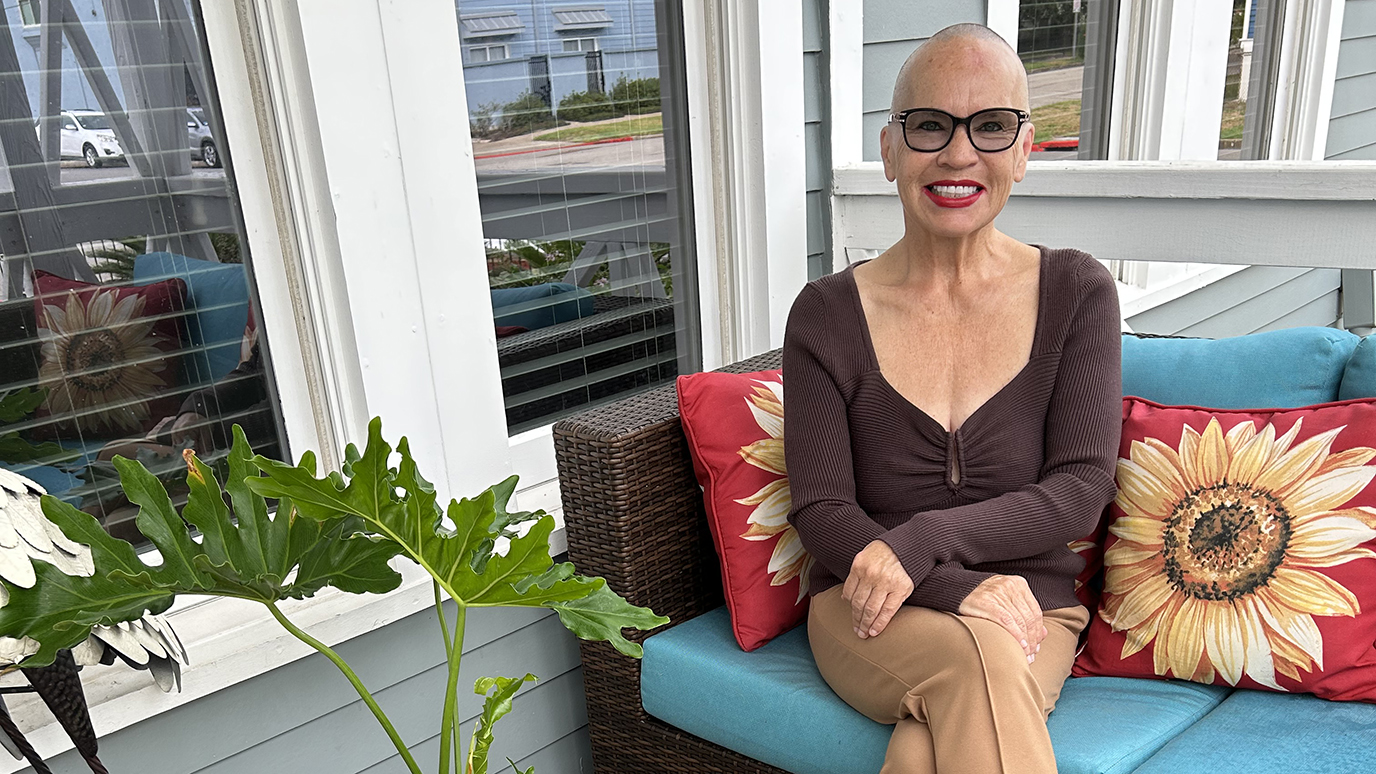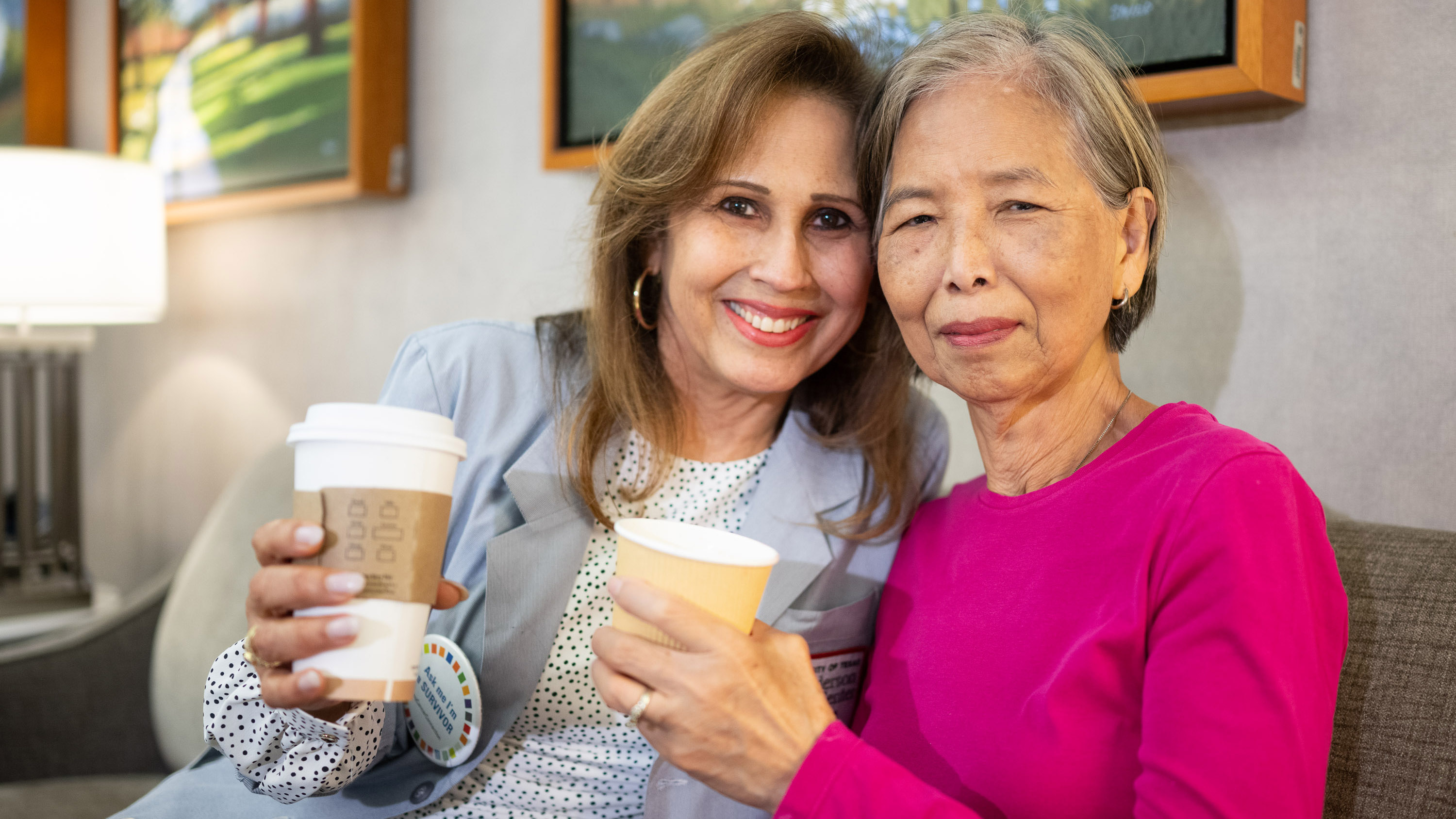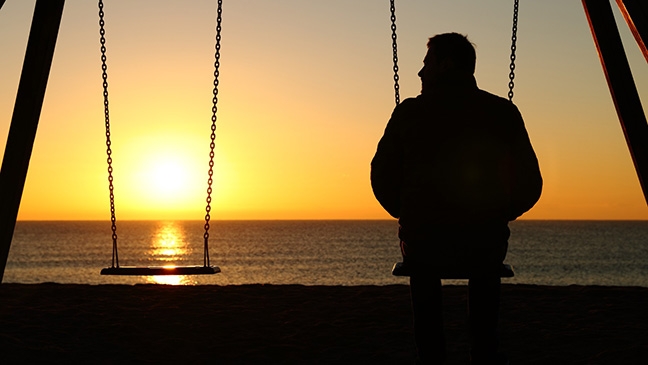- Diseases
- Acoustic Neuroma (14)
- Adrenal Gland Tumor (24)
- Anal Cancer (66)
- Anemia (2)
- Appendix Cancer (16)
- Bile Duct Cancer (28)
- Bladder Cancer (68)
- Brain Metastases (28)
- Brain Tumor (228)
- Breast Cancer (710)
- Breast Implant-Associated Anaplastic Large Cell Lymphoma (2)
- Cancer of Unknown Primary (4)
- Carcinoid Tumor (8)
- Cervical Cancer (154)
- Colon Cancer (164)
- Colorectal Cancer (110)
- Endocrine Tumor (4)
- Esophageal Cancer (42)
- Eye Cancer (36)
- Fallopian Tube Cancer (6)
- Germ Cell Tumor (4)
- Gestational Trophoblastic Disease (2)
- Head and Neck Cancer (6)
- Kidney Cancer (124)
- Leukemia (344)
- Liver Cancer (50)
- Lung Cancer (288)
- Lymphoma (284)
- Mesothelioma (14)
- Metastasis (30)
- Multiple Myeloma (98)
- Myelodysplastic Syndrome (60)
- Myeloproliferative Neoplasm (4)
- Neuroendocrine Tumors (16)
- Oral Cancer (98)
- Ovarian Cancer (172)
- Pancreatic Cancer (166)
- Parathyroid Disease (2)
- Penile Cancer (14)
- Pituitary Tumor (6)
- Prostate Cancer (144)
- Rectal Cancer (58)
- Renal Medullary Carcinoma (6)
- Salivary Gland Cancer (14)
- Sarcoma (234)
- Skin Cancer (294)
- Skull Base Tumors (56)
- Spinal Tumor (12)
- Stomach Cancer (60)
- Testicular Cancer (28)
- Throat Cancer (90)
- Thymoma (6)
- Thyroid Cancer (98)
- Tonsil Cancer (30)
- Uterine Cancer (78)
- Vaginal Cancer (14)
- Vulvar Cancer (18)
- Cancer Topic
- Adolescent and Young Adult Cancer Issues (20)
- Advance Care Planning (10)
- Biostatistics (2)
- Blood Donation (18)
- Bone Health (8)
- COVID-19 (362)
- Cancer Recurrence (120)
- Childhood Cancer Issues (120)
- Clinical Trials (620)
- Complementary Integrative Medicine (22)
- Cytogenetics (2)
- DNA Methylation (4)
- Diagnosis (224)
- Epigenetics (6)
- Fertility (62)
- Follow-up Guidelines (2)
- Health Disparities (14)
- Hereditary Cancer Syndromes (122)
- Immunology (18)
- Li-Fraumeni Syndrome (8)
- Mental Health (116)
- Molecular Diagnostics (8)
- Pain Management (64)
- Palliative Care (8)
- Pathology (10)
- Physical Therapy (18)
- Pregnancy (18)
- Prevention (880)
- Research (384)
- Second Opinion (74)
- Sexuality (16)
- Side Effects (596)
- Sleep Disorders (10)
- Stem Cell Transplantation Cellular Therapy (216)
- Support (404)
- Survivorship (324)
- Symptoms (182)
- Treatment (1762)
Adoption after cancer
2 minute read | Published February 18, 2013
Medically Reviewed | Last reviewed by an MD Anderson Cancer Center medical professional on February 18, 2013
My most recent appointment at MD Anderson took place a week before Christmas. The hospital was decked out with trees, wreaths and red bows. There were even carolers singing outside the diagnostic lab where I was waiting to get blood drawn.
I sat on the outskirts of the lab -- partly so I could hear the music and partly so I could keep an eye on my husband, Danny, and our newly adopted baby. They had a front row seat at the show.
Danny and I began navigating the adoption process between my second and third surgeries on my ovarian area and breast. At that point, we knew having biological kids was no longer an option for us.
How the adoption process is like cancer
The adoption process is a lot of things: tedious, long, expensive and many other adjectives that aren't appropriate here. But adoption is similar to cancer in that you just do what you have to do to get through it. You can't really think about it. You just go into autopilot, put your head down and wait for it to be over.
On September 20, 2012, it was finally over for us. Danny and I stood nervously in an operating room and watched our birthmother deliver a tiny peanut we named Macy Carter.
Watching our daughter being born was an experience that evoked a lot of the same feelings that having cancer does. It was a crazy. Surreal. Super intense.
But this time around, it was all those things in a good way.
The ending to my cancer story
After I finished in the diagnostic lab, I approached Danny and Macy. They were surrounded by fellow patients and concert listeners who wanted a peek at the baby.
I've learned that's par for the course when you have an infant and I never mind it, especially at MD Anderson, where to me, Macy is just as much a part of our community as any other patient.
You see, Macy, as far as I'm concerned, is the ending to my cancer story. She is what my team of MD Anderson doctors worked so hard to protect. And even though we didn't necessarily preserve my fertility in the end, it doesn't matter, because I have Macy who is more perfect than any baby Danny and I could have conceived on our own.
Cancer: the end.
Megan Silianoff is a 30-year-old writer/blogger living in Houston. When she was 28, she was diagnosed with ovarian cancer and most recently has undergone an excisional biopsy of her breast. After four surgeries in two years, she is in complete remission. For more about Megan, check out her blog Greetings from Texas and look for out for her memoir available later this year.
Related Cancerwise Stories

You see, Macy, as far as I'm concerned, is the ending to my cancer story. She is what my team of MD Anderson doctors worked so hard to protect.
Megan Silianoff
Survivor





